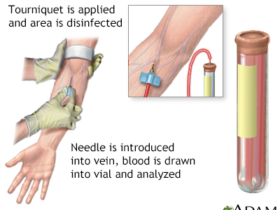Experiencing pain in any part of the body can be unsettling, especially when it’s persistent and of unknown origin. Buttock pain, while often associated with benign conditions such as sciatica or muscle strain, can sometimes be a symptom of more serious health issues, including cancer. This article delves into the possible connections between buttock pain and cancer, exploring the symptoms, potential causes, diagnostic processes, and treatments available.

Understanding Buttock Pain
Buttock pain cancer symptoms can manifest in various forms, ranging from a dull ache to sharp, burning sensations or even discomfort that radiates down the legs. The nature and duration of the pain can often provide clues about its underlying causes. Common benign causes include piriformis syndrome, where the piriformis muscle irritates the sciatic nerve, lumbar arthritis, or even simple overuse injuries from physical activities. However, when pain persists without a clear cause or is accompanied by other concerning symptoms, it may necessitate a deeper investigation.
When to Consider Cancer as a Possible Cause
Cancer is not typically the first thought that comes to mind with buttock pain, but in some cases, it can be a contributing factor. Several types of cancer could potentially manifest symptoms that include pain in the buttocks:
- Bone Cancer: Primary bone cancers like osteosarcoma or Ewing sarcoma can occur in the pelvic bones and may cause localized pain.
- Colorectal Cancer: As it grows, it might press against surrounding tissues or invade nerve clusters, leading to pain.
- Gynecological Cancers: Ovarian, uterine, and other gynecological cancers can spread and press on pelvic nerves, causing discomfort.
- Prostate Cancer: Advanced prostate cancer can metastasize to bones and pelvic structures, potentially leading to pain.
It’s important to remember that these cancers are relatively rare, and buttock pain alone, without other symptoms, is unlikely to be due to cancer. However, if buttock pain is accompanied by other specific symptoms, such as unexplained weight loss, changes in bowel habits, blood in the stool, abnormal menstrual cycles, or night sweats, it should prompt further evaluation.

Diagnostic Processes
If there is a suspicion that buttock pain could be related to cancer, the diagnostic process will typically involve several steps:
- Medical History and Physical Examination: The first step is a comprehensive review of the patient’s medical history and a physical examination. This helps to identify any risk factors or symptoms that might suggest a serious underlying condition.
- Imaging Tests: X-rays, MRIs, CT scans, and bone scans can help visualize the bones, tissues, and organs in the pelvic area and identify any abnormalities that might be causing pain.
- Blood Tests: Certain blood tests can detect markers indicative of cancer. For example, a high level of prostate-specific antigen (PSA) in the blood can be an indicator of prostate cancer.
- Biopsies: If a suspicious area is identified, a biopsy may be necessary to determine whether cancer cells are present.
Treatment Options
Treatment for buttock pain will depend largely on the underlying cause. If cancer is diagnosed, the treatment regimen may include one or more of the following:
- Surgery: To remove the tumor or affected tissue.
- Radiation Therapy: To target and kill cancer cells.
- Chemotherapy: To treat cancer systemically throughout the body.
- Pain Management: Including medications, physical therapy, or alternative therapies to help manage symptoms.
For non-cancer-related buttock pain, treatment might involve physical therapy, anti-inflammatory medications, lifestyle changes, or other non-invasive methods.
Living with Buttock Pain
Managing chronic pain of any kind can be challenging. Individuals must work closely with their healthcare providers to develop a pain management plan that suits their needs. This might include:
- Physical Therapy: Tailored exercises can strengthen muscles and reduce pressure on nerves.
- Medication: From over-the-counter pain relievers to prescription drugs, various medications can help manage pain effectively.
- Lifestyle Modifications: Changes in daily activities, diet, and exercise routines can sometimes alleviate symptoms.
- Supportive Therapies: Massage, acupuncture, and other complementary therapies might provide relief.

Conclusion
While cancer is an uncommon cause of buttock pain, it is not impossible. Recognizing when this symptom could indicate a more serious condition can lead to earlier diagnosis and better outcomes. If you experience persistent buttock pain, especially if accompanied by other symptoms, consulting a healthcare provider for a thorough evaluation is crucial. Early intervention and appropriate treatment can significantly improve the quality of life and, in cases where cancer is involved, potentially improve survival rates.













Got a Questions?
Find us on Socials or Contact us and we’ll get back to you as soon as possible.